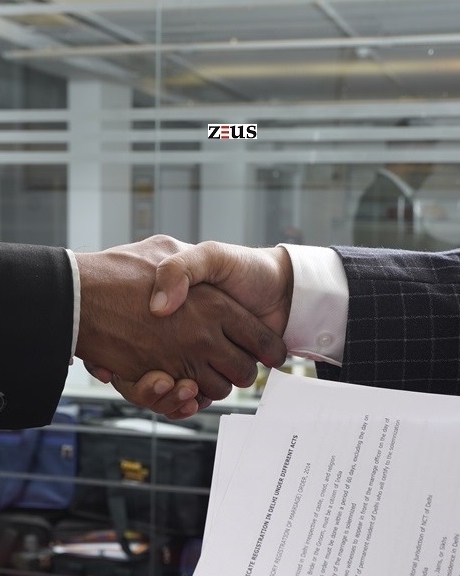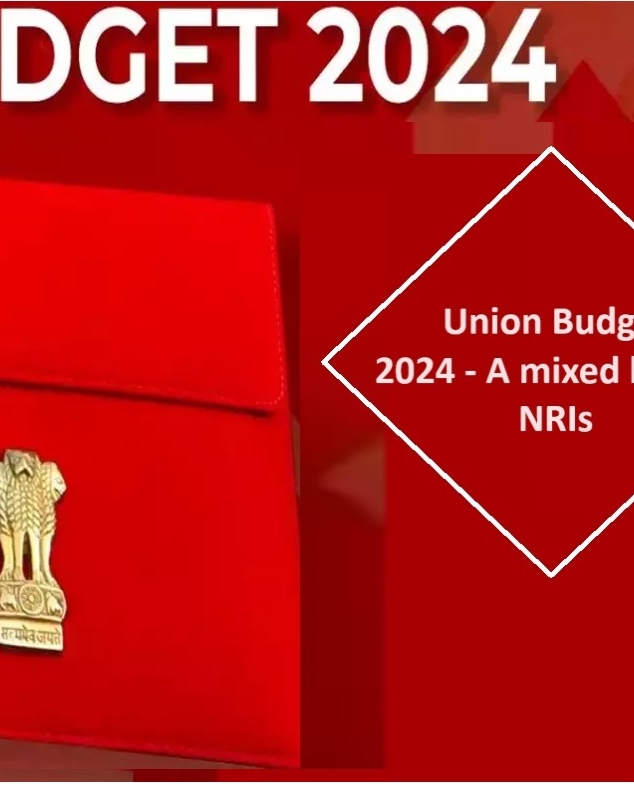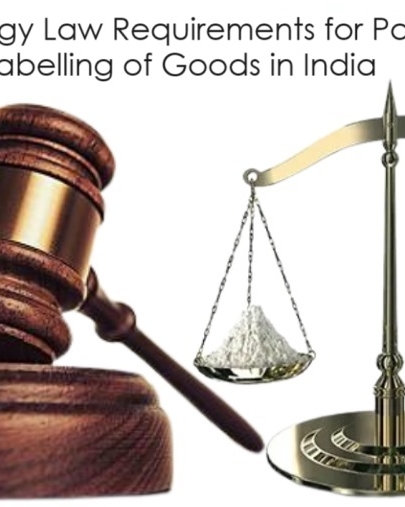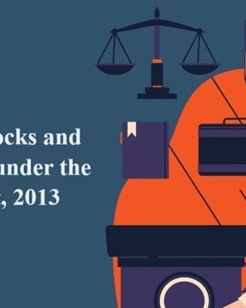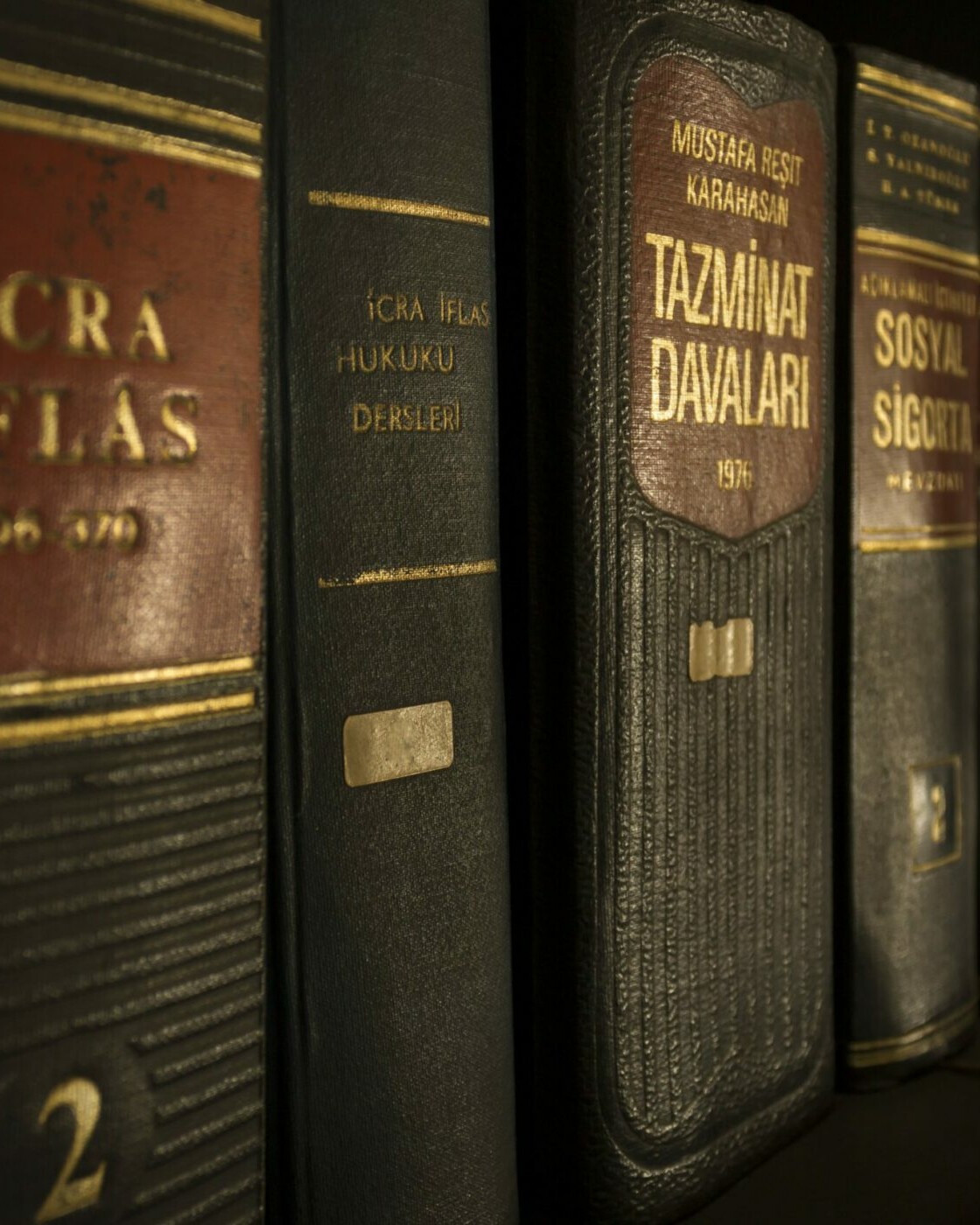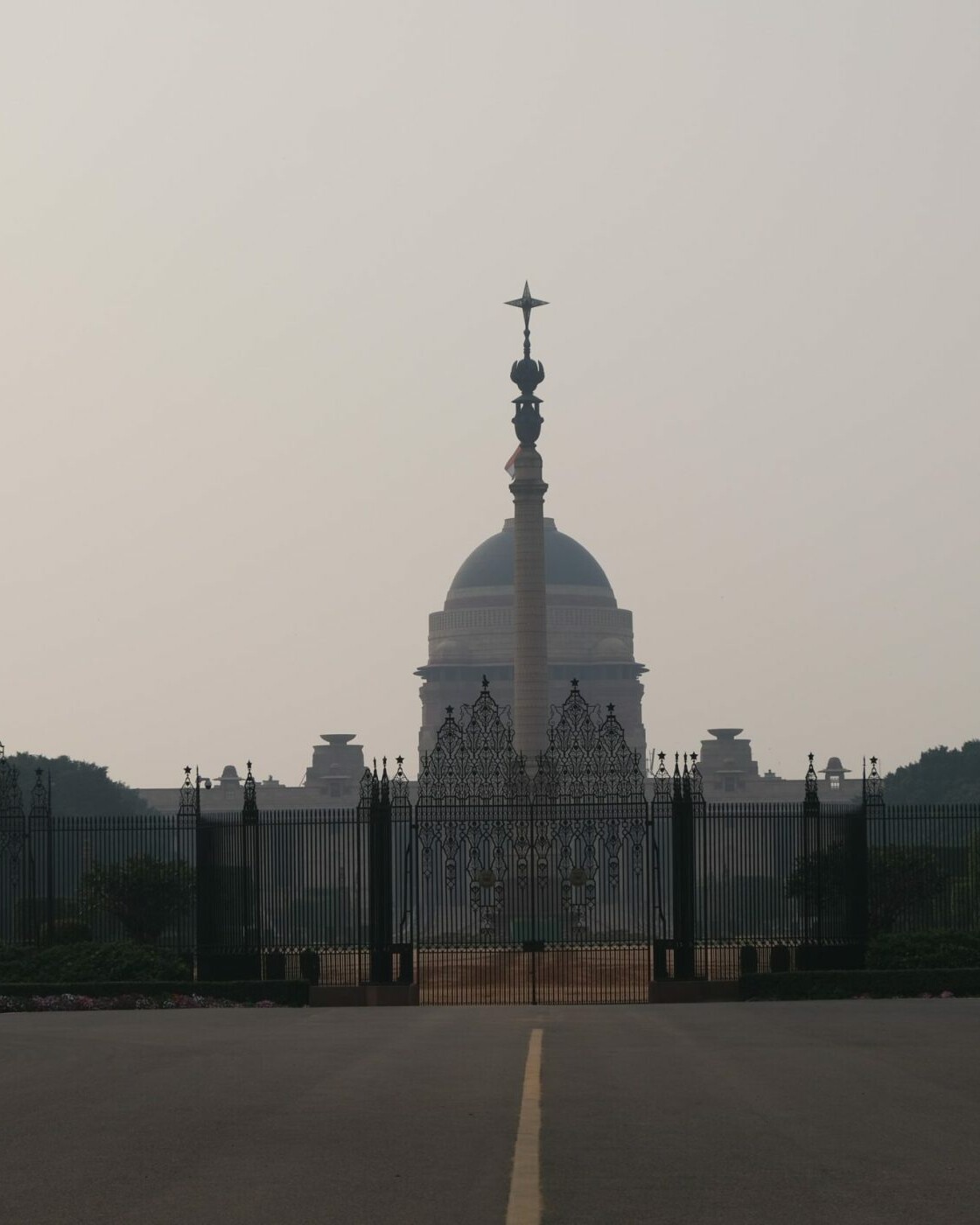Challenging the Arbitrator for Bias and Partiality: Does the Arbitration and Conciliation Act, 1996, Provide Effective Remedy?
Author: Ms. Neetika Bajaj, Managing Associate & Ms. Kopal Mittal, Associate at ZEUS Law
Published in Livelaw on 17th May 2023
Independence, impartiality and party autonomy are the hallmarks of an effective and fair arbitral proceeding. Rule against bias is one of the fundamental principles of natural justice which applies to all judicial and quasi-judicial proceedings. The lack of independence or impartiality on the part of a sole arbitrator, or one or more members of an arbitral tribunal, may constitute a ground for a challenge to the mandate of the arbitrator or the final award pronounced in the arbitral proceedings. This ground of challenge and the challenge procedure is provided under Section 12 and 13, respectively, of the Arbitration and Conciliation Act, 1996 (“the Act”). An arbitrator’s appointment may be challenged at two stages- first, at the time of appointment itself, when the arbitrator provides the mandatory disclosure in terms of the grounds stated in the Fifth Schedule of the Act, and second, during the course of the arbitral proceedings.
However, many argue that the Act does not provide an effective remedy when it comes to challenging the mandate of the arbitrator on the ground of “bias” and “partiality” during the conduct of the arbitral proceeding. This argument demands a brief analysis of the purported infirmity in the Act.
What Constitutes “Bias”?
The Act does not define the terms “bias” or “partiality” on the part of an arbitrator. However, Clause 12(3)(a) of the Act talks about circumstances that may give rise justifiable doubts as to the “independence and impartiality” of an arbitrator. The Fifth Schedule to the Act lists out the grounds that would act as a guide in this determination such as arbitrator’s relationship with the parties or counsel, relationship of the arbitrator to the dispute or arbitrator’s direct or indirect interest in the dispute, etc.
The Hon’ble Supreme Court of India in the case of VoestalpineSchienen GmbH v. Delhi Metro Rail Corporation Ltd.[1] while embarking on the “apprehension of bias” held that “the amended provision is enacted to identify the “circumstances” which give rise to “justifiable doubts” about the independence or impartiality of the arbitrator. If any of those circumstances as mentioned therein exists, it will give rise to justifiable apprehension of bias. The Fifth Schedule to the Act enumerates the grounds which may give rise to justifiable doubts of this nature.”
Another judgment of the Supreme Court[2] described bias as “a preconceived opinion or a predisposition or predetermination to decide a case or an issue in a particular manner, so much so that such predisposition does not leave the mind open to conviction. It is in fact, a condition of mind, which sways judgments and renders the judge unable to exercise impartiality in a particular case”.
Challenge Procedure Under the Act
It is settled law that a party alleging “apprehension of bias” against an arbitrator(s) can avail the remedy only in terms Section 13 of the Act. A reading of the said section will reveal that the aggrieved party has three (3) options to avail the remedy.
First, Section 13(1) gives the option to the parties to the arbitration to agree on a “procedure” to challenge the arbitrator. In our opinion, the parties will rarely agree on a “challenge procedure” since, in a normal course of proceedings, if one party is raising the allegations of bias and partiality, it is more likely than not germinates from the arbitrator’s purported bias and partiality in the favour of the other party. In such a case, where one party is seemingly benefitting from the alleged bias, it is unlikely that it would be interested in challenging the mandate of the arbitrator. As a natural corollary, it would be virtually impossible that the parties would reach a consensus on the challenge procedure. Further, there is no clarity under the law or any legal precedent as to what would be that challenge procedure. Will the parties go to a neutral third person or approach an independent institution? Then the question arises, what would be the statutory sanctity of an order passed by such a neutral third person or an independent institution. This would result in the first option being virtually infructuous.
Second, Section 13(3) of the Act gives the arbitrator(s), accused of bias and partiality, an option to recuse on the basis of the “written statement of reasons” filed before the arbitrator by the aggrieved party. If the arbitrator(s) decides to recuse, the challenge ends in success and a new arbitrator is appointed who takes on the proceedings either from the stage where they were left or from the beginning, depending on the discretion of the new arbitral tribunal.
However, if the arbitrator(s) decides not to recuse, then Section 13 says that the same arbitral tribunal or the sole arbitrator, whatever the case maybe, shall decide on the challenge on the basis of the same “written statement of reasons”. Now, this is a tricky terrain. If the arbitrator(s) has already decided not to recuse then it is somewhat an indication of the decision of the arbitrator in its own favour. This is especially so in the case of an sole arbitrator. According to common logic and basic notions of human behaviour, if a person has decided that he/she is not biased and, therefore, is not ready to recuse then what is the likelihood that that person will decide against himself/herself. A bleak one, right?
Further, the Act does not provide a right of appeal against the order of the arbitrator under Section 13(3) till such ground is available under Section 34 of the Act after the final award is given by the same arbitral tribunal.
Therefore, the aggrieved party has to wait till the final determination to challenge the “bias and partiality” unless the award comes in its favour.
“Wisdom” of the Parliament
It is argued that the said challenge procedure is against the principle of natural justice. particularly, the principle that “no one can be the judge in its own case”.
So, why has our Parliament decided to frame the law in such a way? While the Indian Arbitration Act is based, and derived from, the UNICTRAL Model Law, the Indian Parliament decided to depart from it on the subject of impartiality. The reason for this departure was explained by a judgment of High Court of Karnataka[3] wherein the court states that “The legislature thought in its wisdom that frequent recourse to appellate remedy, destroys the essence of the spirit behind the enactment of the Arbitration and Conciliation Act, 1996. As there is no inherent right of appeal except as conferred by the statute, it is difficult for the Court to hold that, it amounts to arbitrariness violating the protective cover of Article 14 of the Constitution of India”. A similar view was taken by the High Court of Andhra Pradesh in M. Mohan Reddy vs. Union of India and Ors.[4]
However, the 1940 Act provided a curial remedy granting powers to the court to remove the arbitrator “who has misconducted himself or the proceedings”. This remedy was, obviously, taken away in the light of the observation that this curial approach has a “scope for a lot of abuse”. This question was also mediated in the 176th Report of the Law Commission on the Arbitration and Conciliation Amendment Bill, 2001 wherein it was felt that if an immediate appeal is provided, the party who wants to delay the arbitral proceedings will, in almost every case, file an objection before the arbitral tribunal pleading bias or other disqualification and then file an appeal under Section 37 of the Act.
How our Challenge Procedure Differs from Other Prominent Jurisdictions?
It is imperative to point out that the “challenge procedure” under the Indian Arbitration Act is in stark contrast to the procedures adopted in other model nations. For instance, Section 24 of the UK’s Arbitration Act (Arbitration and Conciliation Act, 1996) stipulates that such challenges would lie under the jurisdiction of the Courts of UK. Further, Section 13 of the Commercial Arbitration Act, 2012 (WA) stipulates that the Courts of Australia shall have the jurisdiction to decide on the challenge to an arbitrator where “circumstances exist that give rise to justifiable doubts as to his impartiality or independence”. Furthermore, the rules of the leading institutes for international arbitration also envisage the adjudication of such challenges by person(s)/authority(ies) other than the challenged arbitrator. For instance, under the Rules of Arbitration of the International Chamber of Commerce (ICC), 2021, the International Court of Arbitration attached to the ICC has the power to decide any challenge to an arbitrator on the ground of suspected bias. Also, as per Rule 16 of the SIAC Rules, 2016, the challenge to the arbitrator/arbitral tribunal lies before the Court[5].
Conclusion
The above discussion, undoubtedly, raises questions as to efficacy of the remedy provided under Section 13 of the Act. However, the wisdom of the Parliament, in the light of the track record of abusive litigation, can also not be ignored. So, can there be a middle ground? Article 25 of the Peru Law which was discussed by Dr Pieter Sanders in his Article “Unity and Diversity in the Adoption of the Model Law”[6] suggests an alternate remedy:
“If there is one arbitrator, the judge or the arbitral institute organizing the arbitration decides on the challenge. If there is more than one arbitrator, the arbitral tribunal decides on the vote without the vote of the challenged arbitrator. In case there is a tie, the chairman or, if he is challenged, the most senior member of the Tribunal decides. In all cases decision is final.”
A similar approach, appropriately adopted in the Indian context, appears to be a feasible option rather leaving the aggrieved party hanging till the end of the arbitral proceedings.
Views are personal
Neetika Bajaj, Managing Associate and Kopal Mittal, Associate, Zeus Law Associates
Ms. Neetika Bajaj leads the Disputes Practice at Zeus Law Associates. The Zeus Disputes Practice has developed into a niche and specialised practice group consisting of members with expertise and experience in handling all stages of complex commercial domestic and international including relating court litigation.
[1] (2017) 4 SCC 665.
[2] West Bengal and Others v. Shivananda Pathak and Others (MANU/SC/0342/1998)
[3] R.K. Agrawal and Ors. vs. B.P.K. Johri and Ors (MANU/KA/0020/2001)
[4] MANU/AP/0407/1999.
[5] “Court” means the Court of Arbitration of SIAC and includes a Committee of the Court [Rule 1.3 of the SIAC Rules, 2016].
[6] Pieter Sanders, Unity and Diversity in the Adoption of the Model Law, Arbitration International, (Kluwer Law International 1995 Volume 11 Issue 1 ).





